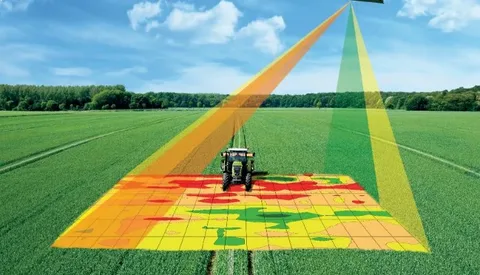Introduction
As the global population continues to grow, the demand for food increases exponentially. This challenge has pushed the agricultural sector to explore innovative solutions that not only boost productivity but also promote environmental sustainability. One such transformative approach is Precision Agriculture: Enhancing Sustainability in Modern Farming. By leveraging technology, precision agriculture offers a way to optimize farming practices, reduce waste, and protect natural resources.
What is Precision Agriculture?
Precision agriculture refers to the use of advanced technologies—such as GPS, IoT sensors, drones, and data analytics—to monitor and manage farming activities with high accuracy. This method allows farmers to apply water, fertilizers, and pesticides precisely where and when they are needed, reducing excess input and minimizing environmental impact.
How Precision Agriculture Enhances Sustainability
Efficient Resource Management
One of the key benefits of precision agriculture is its ability to promote efficient resource use. Through real-time data collection and analysis, farmers can tailor their irrigation schedules and fertilizer applications to the specific needs of each crop zone. This precision reduces water consumption and prevents over-fertilization, which can lead to soil degradation and water pollution.
Reduction of Chemical Use
Precision agriculture technology helps in applying pesticides and herbicides more selectively, which not only cuts costs but also limits chemical runoff into nearby ecosystems. This targeted approach supports biodiversity and helps maintain healthier soil conditions.
Improved Crop Yields with Lower Environmental Impact
By monitoring crop health closely, precision agriculture enables early detection of diseases and pest infestations, allowing timely intervention. This proactive management leads to better crop yields and less waste, ensuring a more sustainable farming operation.
Challenges and Future Outlook
Despite its advantages, the adoption of precision agriculture faces challenges such as high initial costs, the need for technical expertise, and data privacy concerns. However, ongoing advancements and increased access to affordable technology are making precision agriculture more accessible to farmers worldwide.
As the technology evolves, Precision Agriculture: Enhancing Sustainability in Modern Farming will play an increasingly vital role in ensuring food security while protecting the environment.
Conclusion
Precision agriculture represents a significant step forward in modern farming practices. By enabling farmers to make data-driven decisions, it enhances sustainability through better resource management, reduced chemical use, and improved crop productivity. Embracing precision agriculture is essential for meeting the demands of a growing population while preserving the planet’s natural resources for future generations.



